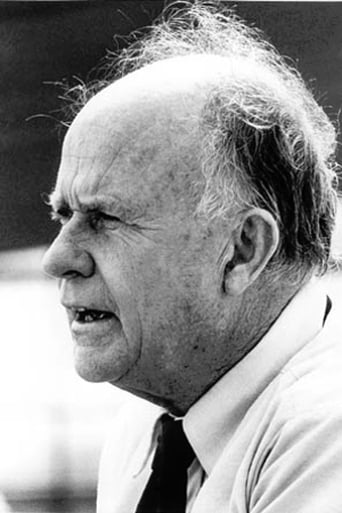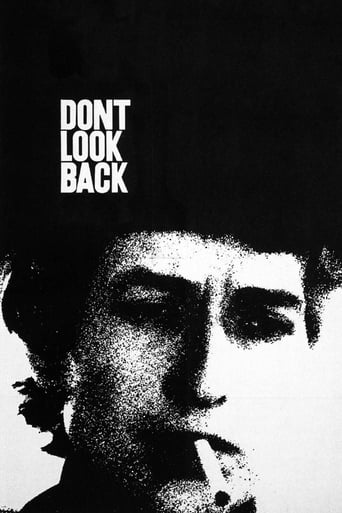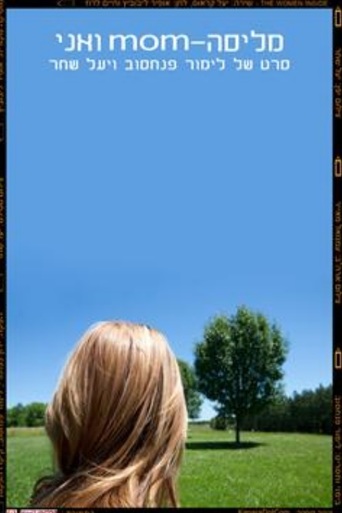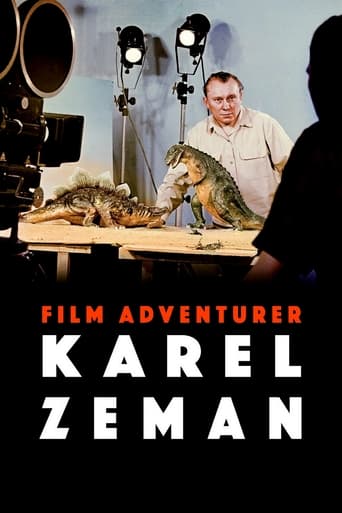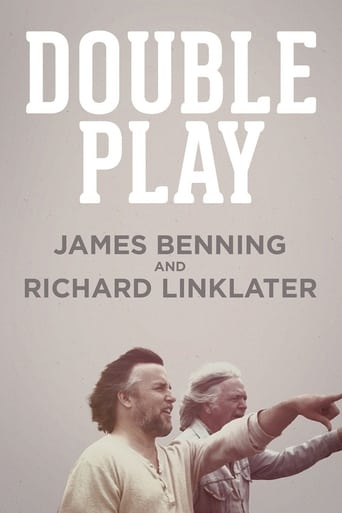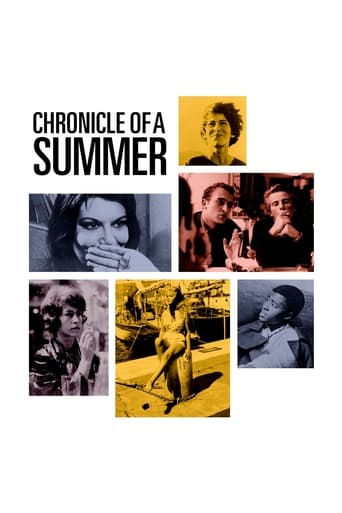
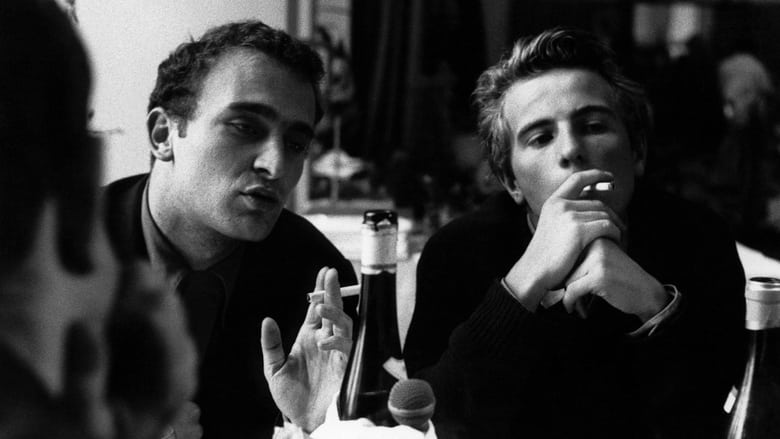
Chronicle of a Summer (1961)
Paris, summer 1960. Anthropologist and filmmaker Jean Rouch and sociologist and film critic Edgar Morin wander through the crowded streets asking passersby how they cope with life's misfortunes.
Watch Trailer
Cast
Similar titles
Reviews
The Age of Commercialism
The plot isn't so bad, but the pace of storytelling is too slow which makes people bored. Certain moments are so obvious and unnecessary for the main plot. I would've fast-forwarded those moments if it was an online streaming. The ending looks like implying a sequel, not sure if this movie will get one
An old-fashioned movie made with new-fashioned finesse.
The movie really just wants to entertain people.
This was a French documentary film listed in the book 1001 Movies You Must See Before You Die, apart from a few websites explaining what is it I couldn't find many reviews for it at all, I still watched it. Basically the film sees real life individuals discussing the topics of society and happiness in the working class, these testimonies are then recreated by the filmmakers with fictional moments based on their interviews. Later the individuals are seen discussing the images created with their own words and see if the movie recreated by actors obtained and captured their level of reality. To be honest, because of it being subtitled it was hard to concentrate on everything going on, and especially with which of the people seen on screen are supposed to be real or acting, and I wasn't concentrating fully on their discussions. But I suppose could see the point of the film, to see if real life can be recreated with enough realism to convince not only the audience watching, but the actual people watching themselves played by actors, I can only assume this is the reason for it, anyway it's not a bad documentary. Worth watching, at least once, in my opinion!
I see that some people are becoming drowsy during screenings of this film? Actually the previous critique reminds me of a scene in Annie Hall when Annie and Alvy are waiting in the movie line and a man behind them is obnoxiously breaking down the "indulgent" vision of Bergman for an uninterested date and won't shut up because he feels he has an "opinion." Well, maybe we have all been that guy once or twice. But you know, Anthropology is tough; it's not an ethnocentric entity as individuals are. It's a "one way journey" as a professor of mine put it...once you turn off the cultural program (if you can) running your higher functions, you are set adrift onto a sea full of dangers with no life raft. If you survive, you do not view the ocean the same way ever again. Sorry to get metaphorically annoying as if I were qualified to say anything, but this film is not a waste and it should not put one to sleep if one is interested in ethnography. It takes a direct approach of sorts and it is an art form. I have come to see that. There are layers of truth in this work and telling data the filmmakers have taken unique artistic and analytical pains to share with us by abandoning their theoretical life rafts to sink or swim. The film portrays a very different kind of ethnographic subject-Us- the children of Mother Modernity from various walks of life and since a major theme being explored by Rouch is happiness, I think in some small way it applies to many of us; we the individualists. Maybe by reading some of Rouch's articles as a supplement to his film work the viewing experience will become much more invigorating for some. If not, then I guess anthropology isn't going to win this one. I give it a ten for real originality man.
It has a somewhat simple beginning: Edgar Morin and Jean Rouch chose some characters and follow them around, organizing round-table discussions with them and trying to get a handle of their lives and how they are affected by living in 1960s Paris. The movie itself, however, becomes more complicated as it becomes a more experimental approach to the ever-present documentary conundrum: Truth. As Morin and Rouch play around with different ideas and approaches to making a Truthful picture of "a summer", they have to deal with problems of whether or not they're directing, how to truly show a person's character unchanged by a camera's presence, and all of those issues dealing with the burden of representation and what the subjects desire out of the process of being subjected to the camera's eye.However, there is no truth in media--there is only representation. Is this a problem? Morin and Rouch's documentary is itself a representation of discovering representation, which makes it infinitely self-reflexive and self-aware. Thus, it becomes problematic to truly decide whether or not the documentary is "successful" or not, especially since Morin and Rouch include an denouement where they discuss their impressions themselves. Does this documentary even need the subjects it represents in order to get it's own themes across, or do in fact the subjects deserve a more straight-forward exposition? These questions, not the answers, are the point of this documentary.--PolarisDiB
I stepped on a box of upturned cocktail sticks once, and would happily do it again if it would get me out of ever having to see this again. The art of watching paint dry seems like a spectator sport in comparison. At the mid point of this movie i seriously considered gauging my eyes out with a rusty spoon but i had been drained of the energy that would enable me to do so. This film was intended to explore 'life' however it made me question whether or not i wanted to keep living mine. On a serious note, in the screening i was in, i spotted 7 people sleeping and half the audience simply walked out. Do not operate heavy machinery while watching or thinking about this so called film, i call it a video that allows real people to experience the monotony of manic depression. Watch Stuart Little instead.

